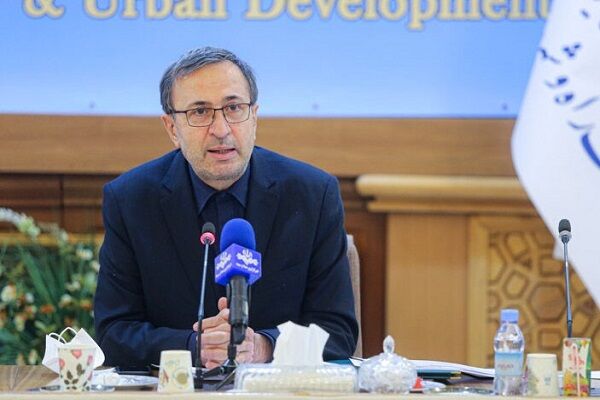Tehran, September 19 (MRUD NEWS)—Iran Ministry of Roads and Urban Development is seeking to develop a comprehensive road map for joint trilateral transit cooperation between Iran, Afghanistan and China as per the seventh five-year Development Plan and the will to realize geopolitical advantages.
According to the Deputy Transport Minister, Shahryar Afandizadeh, Iran has had constructive negotiations and joint actions with Afghanistan in transport and transit cooperation. This includes launching operation of Khaf-Herat Railway. In July 2023, the first train along Khaf-Herat Railway entered Rozanak Station after Iran and Afghanistan's agreement in December 2022 to repair the damages incurred to the Rozanak Station in order to resume operation of Khaf-Herat Railway.
Similarly, Iran is also supporting China's the Belt and Road Initiative (BRI) due to joint opportunities and advantages. Moreover, Beijing reached an agreement with Afghanistan for development of BRI and the two sides are strengthening joint interests. This of course needs huge investments in Afghanistan infrastructures for which there was a contract as the first significant foreign investment in this country since August 2021 when the Taliban took over.
In line with promoting trade transactions with northern and southern neighbors, Afghanistan is developing international freight transit to China. Namely we are witnessing the launch of multimodal corridor of "China-Kyrgyzstan-Uzbekistan-Afghanistan" along Kashgar-Osh-Andijan-Galaba-Khayraton route with partnership of a Chinese international logistic firm as well as "China-Pakistan-Afghanistan" road corridor from Kashgar-Khunjerab Pass on the China-Pakistan border under TIR Convention. This comes following Afghanistan’s willingness to join the China-Pakistan Economic Corridor (CPEC) under the aegis of the Belt and Road Initiative (BRI). In addition, Afghanistan, with the cooperation of Uzbekistan and Pakistan, has put the construction of the Termez-Mazar-e-Sharif and Peshawar Railway on the agenda which give the region’s landlocked countries access to the sea for enhanced trade.
Given the priority of Iran's 13th government for expansion of regional transit cooperation and also the Samarkand Declaration which was adopted by the Heads of State of Shanghai Cooperation Organization (SCO) at their annual summit on September 2022, for the socio-economic development of Afghanistan and the active integration of this country in the global economy, Iran Ministry of Roads and Urban Development can pursue joint regional cooperation between Iran, Afghanistan, and China in cooperation with relevant domestic bodies and also regional and international organizations and institutions, including the Shanghai Cooperation Organization, in which Afghanistan is an observer member, and the Economic Cooperation Organization (ECO) and other regional economic organizations, Iran deputy transport minister explained.
According to Afandizadeh, Iran can follow resumption of regional transit alliance through reviving the law of the agreement on international transport routes of Iran, Afghanistan, Uzbekistan, which was approved by the Islamic Parliament in 2002 and was valid for 10 years and could be extended with the agreement of the members. There is possibility of adding new members to it. Also, Iran focuses attention on the implementation of five-party agreement on the feasibility studies of the Iran-Afghanistan-Tajikistan-Kyrgyzstan-China rail corridor project reached in October 2010 with a length of 2100 km, of which 1150 km is located in Afghanistan's territory and passes through the six provinces of Kunduz, Balkh, Jawzjan, Faryab, Badghis and Herat and further connecting it to the Khaf-Herat railway.
